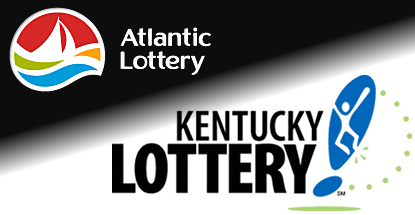 The Kentucky Lottery Corporation (KLC) has issued a request for proposals (RFP) for the acquisition of an “iLottery System” to help take the Kentucky Lottery into the last century. Despite the 2011 Department of Justice opinion that freed state lotteries to take their action online, there are currently only a handful of US states – Illinois, Minnesota and Georgia – that have done so. The Commonwealth of Kentucky is looking to join this elite list by mid-2015 and has asked prospective technology partners to submit their applications by September 18.
The Kentucky Lottery Corporation (KLC) has issued a request for proposals (RFP) for the acquisition of an “iLottery System” to help take the Kentucky Lottery into the last century. Despite the 2011 Department of Justice opinion that freed state lotteries to take their action online, there are currently only a handful of US states – Illinois, Minnesota and Georgia – that have done so. The Commonwealth of Kentucky is looking to join this elite list by mid-2015 and has asked prospective technology partners to submit their applications by September 18.
Specifically, Kentucky is looking to boost sales and profitability by offering a web and mobile product that will both appeal to existing players and attract new ones. The Lottery plans to start its online existence with digital versions of its traditional draw games – Powerball, MegaMillions, Pick 3, Keno, etc. – while adding iScratch games within six months of the online launch. The introduction of new games hinges on their being “legally permitted by the Lottery,” but as Minnesota has demonstrated, that offers a lot of leeway.
ATLANTIC LOTTERY WANTS TO JOIN CANADIAN ONLINE GAMBLING PROVINCES
Further north along the east coast, Canada’s maritime provinces are looking to develop a far more comprehensive online presence. The Atlantic Lottery Corporation (ALC), which oversees gaming activity in Newfoundland, New Brunswick, Nova Scotia and Prince Edward Island, wants to have a “discussion” with regional politicians about joining their provincial lottery monopoly counterparts in British Columbia, Manitoba, Quebec and (soon) Ontario in taking their action online.
The ALC’s 2013-14 annual report for the fiscal year ending March 31 showed lottery profits of $368.4m, $7m better than the year before. That’s the first annual gain since 2008-09, when profits peaked at $398m. Online sales rose $1.1m to $19.2m, but the ALC wants to offer more than just online lottery tickets and games like iBingo and Pick’n Click.
In a section of the report titled ‘Competitive Reality,’ ALC CEO Brent Scrimshaw says Maritimers are “spending millions of dollars annually” on internationally licensed online gambling sites and the ALC thinks those millions would be better off going into their pocket.
The ALC notes that the demographics of its lottery players are trending upward and online gambling is necessary to attract players “who grew up in the digital world playing games of strategy and skill, with leaderboards and player profiles.” The ALC says it has to do a better job of providing younger adults with “entertaining options” i.e. “new styles of games and new experiences unlike what we offer today.”
